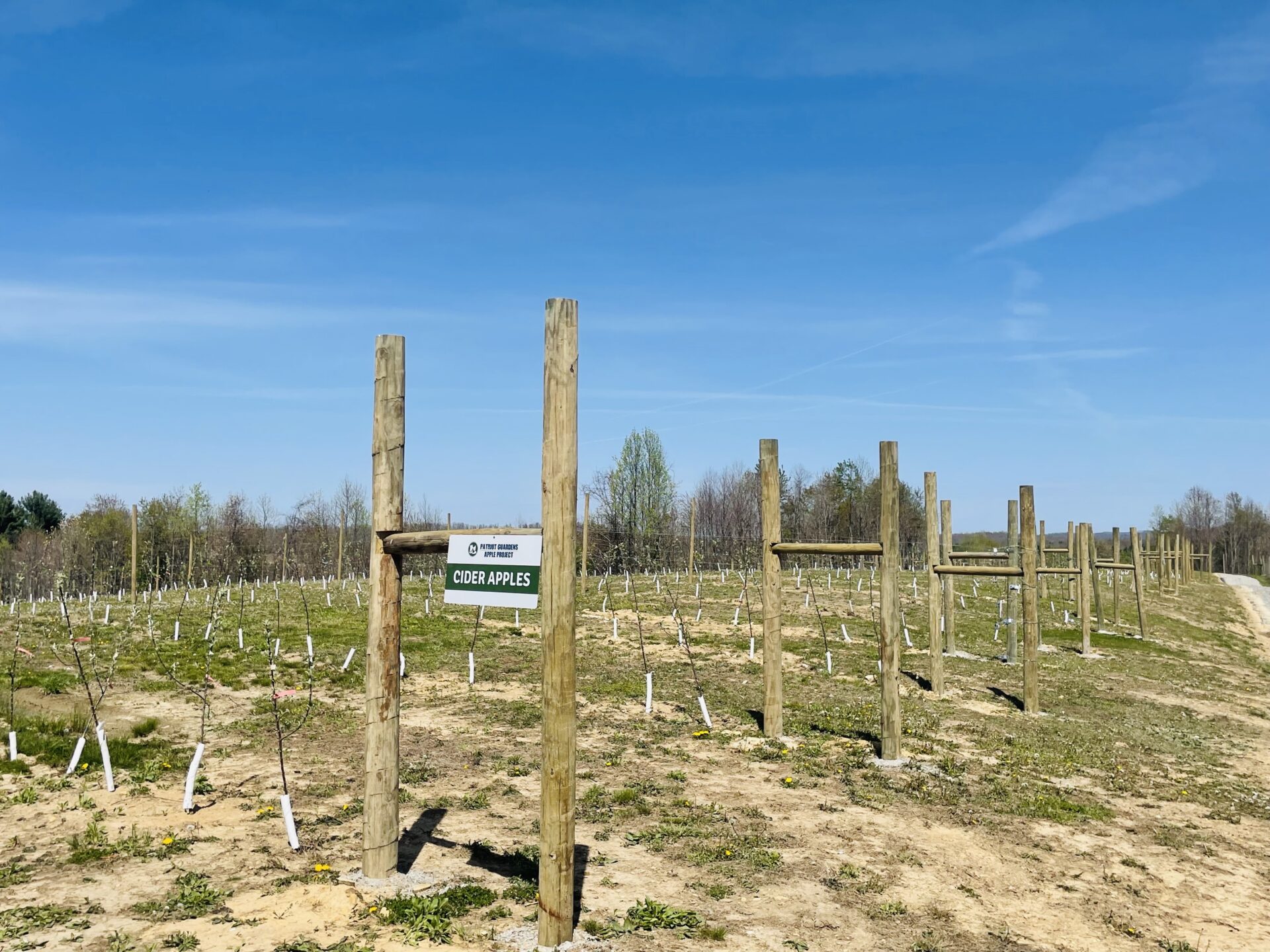A long winding road, once frequented by coal trucks, leads to the top of what used to be a mountain. At its end are flat fields filled with budding apple trees.
Major General Bill Crane said this apple orchard was an abandoned mine seven years ago.
“We’ve got about 20,000 apple trees in the ground,” Crane said. “It’s an experimentation site that we work with the United States Department of Agriculture (USDA).”
This is one way the National Guard is taking on climate change and pollution. The Guard has teamed up with scientists from the USDA and West Virginia University (WVU) to find ways to grow apple trees on land that was previously thought to be somewhat of a waste land.
First they had to tackle one major problem: No topsoil. The solution: Chicken poop from pastures in the state.
“The nice thing we’re doing here is we’re bringing chicken manure from the Eastern Panhandle, we bring it here to help make the soil better,” Crane said.
Chris Dardick, a scientist with the USDA, said taking the chicken manure from the Eastern Panhandle to the orchard helps mitigate farming runoff into rivers. He said nitrogen from animal waste has been running into rivers, and creating algae blooms, which cause other aquatic life to die.
“Much of [chicken manure] contains nitrogen,” Dardick said. “Bringing it out here, out of the Chesapeake Bay watershed, and using it to amend the soils for apple production or other crops, that’s sort of a win-win.”
Tracy Leskey works with Dardick at the USDA as the research leader for this project and said the trees absorb another climate changing element — carbon.
“One of the things that we recognized a few years ago is this opportunity for apple trees to sequester carbon from the atmosphere,” Leskey said.
Trees take in carbon, and store it in their trunks and roots, or deliver it to the ground. The process is known as carbon sequestering and is one tool for fighting climate change.
And where the land had carbon removed from the soil in the form of coal, Leskey said the soil can now hold, or sequester, more carbon than the typical soil can.
But this project isn’t only aimed at helping the earth. Melissa Stewart, director of Patriot Guardens, hopes this project will also help the mental health of both active and retired service members.
“When they come back home from a deployment, and maybe they have seen some things that they don’t want to remember, they can’t have a conversation with somebody to get that out of their mind?” Stewart said.
She hopes that service members can create a “side hustle” and learn a hobby that brings peace and healing.
“Through agriculture, they can work with their hands, in an atmosphere like this,” Stewart said.
This is one of many projects the National Guard is working on to produce food like peaches, strawberries and arugula in the state. These projects are aimed at combating food insecurity in West Virginia where one in seven children experience hunger. Stewart says this is where the farming work takes on a special meaning for service members who are transitioning out of the service.
“To take that need to serve and give it purpose as they come out a uniform, being able to illustrate that they’re still serving our state as they transition into more of a civilian status by helping grow the food that helps feed our families helps feed our state,” Stewart said.
